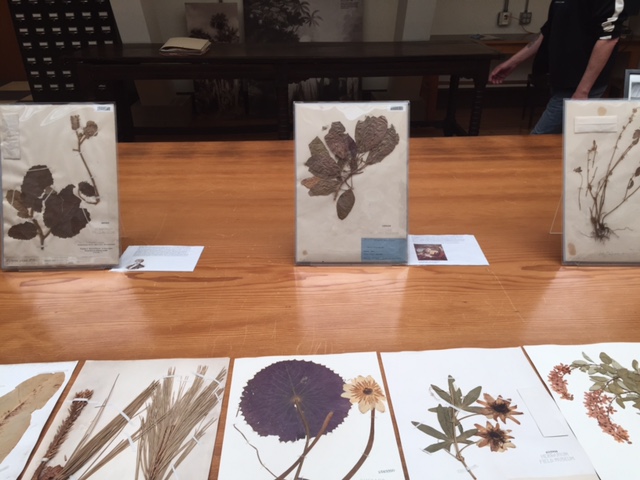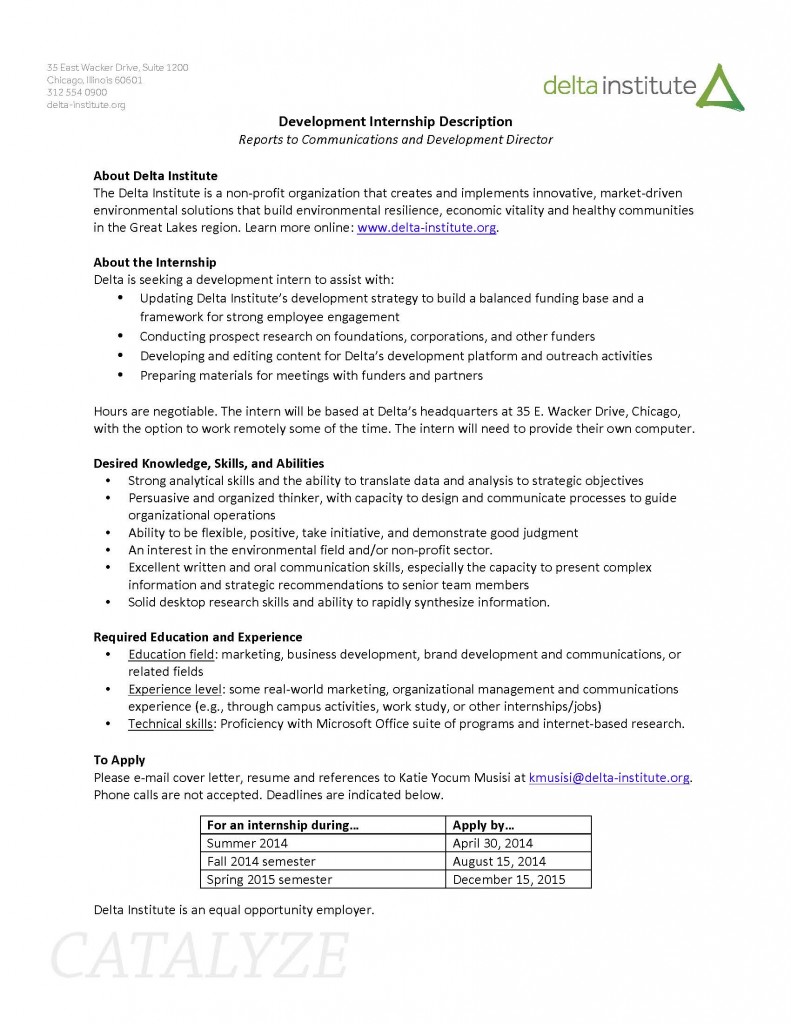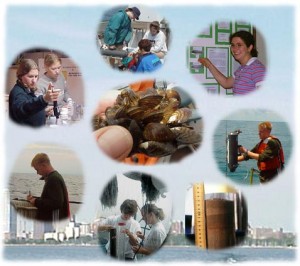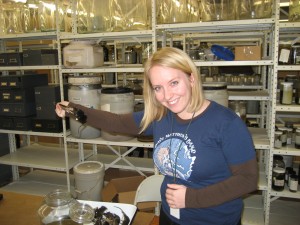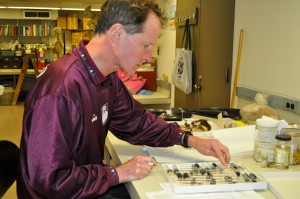Last Monday, as a warm 60+ degree (F) day enveloped downtown Chicago in a splendid preview of spring, my students and I hiked from Roosevelt’s Gage Building in the Loop to the lakefront, where we strolled southward to that great edifice of natural history and biodiversity, the Field Museum. Once there, we met up with Carter O’Brien, the Museum’s sustainability manager (who basically created the job over a number of years after spearheading the FMNH’s recycling program). Carter gave us a comprehensive walking tour of the museum’s grounds, community garden, and loading dock.
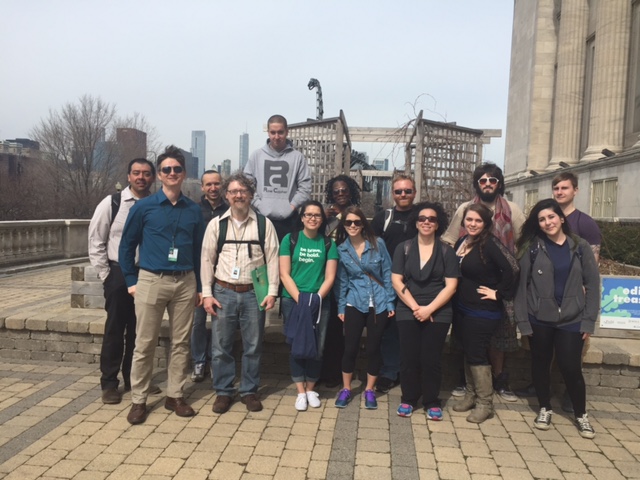
Along with many of staff and researchers at the FMNH, Carter has spearheaded the museum’s efforts to green its practices in energy consumption, waste management, food service, recycling, transportation, exhibit design, and gardening. Despite being an institution dedicated to studying and conserving the world’s rich trove of biodiversity, the Field Museum until recently was not at all sustainable in its own operations, an irony not lost on environmental advocates such as Carter and many of his museum colleagues. Now the FMNH is a recognized leader in transforming old buildings into sustainably-managed facilities, as it recently garnered a LEED Gold rating on its operations and maintenance from the US Green Building Council, only the 2nd existing museum building in the US to do so, and it has just received a $2 million grant to redevelop its grounds within Chicago’s famed Museum Campus in ways that enhance biodiversity, water conservation, and public education.
Carter brought us inside through the seemingly ancient (and surprisingly small) loading dock, thorough a phalanx of heavy doors, narrow passageways, and claustrophobic elevators (all part of the FM’s 19th Century charm), and to the Botany research division, one of the four major research/collections areas of the museum. There we met up with the equally ebullient Dr. Matt Von Konrat, who has many titles at the museum but is best known as an early land plant botanist (which means he studies mosses and liverworts both here and abroad) and the Head of Botanical Collections at the museum.
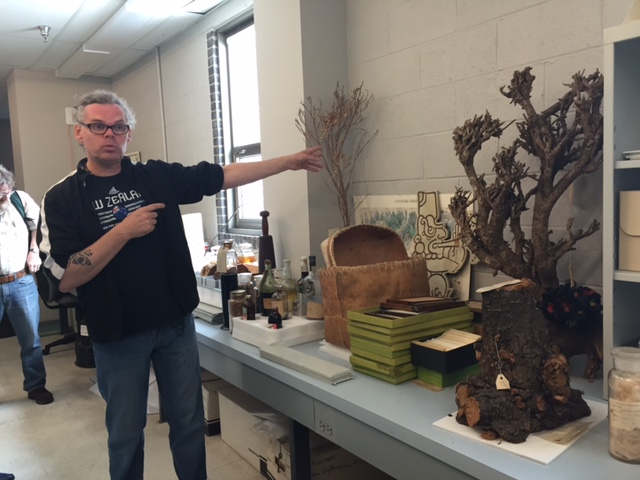
Dr. Von Konrat was kind enough to set up a sampling of preserved plant specimens from the Museum’s vast collection, which when arrayed on a huge wooden table represented a journey of 500 million years of land plant evolution. Many of these examples had special significance as type specimens, which are recognized as being archetypal examples of the species that are used for benchmarking certain key identifying characteristics.
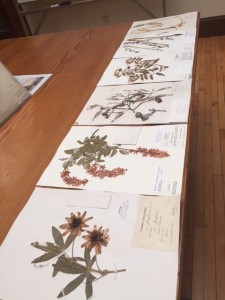
One plant, a particularly tiny moss, held special significance in a recent court case about Burr Oak Cemetery scandal in the far South Side Chicago neighborhood of Dunning. Cemetery caretakers dug up several hundred human remains and dumped them in a mass grave in order to sell additional plots in the cemetery over a several year period. The moss was part of forensic evidence analyzed by Dr. Von Konrat that proved the involvement of cemetery employees in this heinous crime. The story illustrates the profoundly important role that environmental evidence can play in forensics, and the potential value in aligning the study of botany (and sustainability) with that of criminal justice.
After both of these splendid tours, my students and I ventured forth into the public area of the museum — its exhibits, naturally! — where we inspected the notable (and LEED Gold certified) conservation exhibit, Restoring Earth, which documents FMNH efforts to conserve natural and human communities in South America as well as restore local prairie, woodland, and wetland ecosystems here in the Chicago region.
